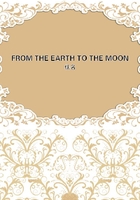
第60章
The president drew a thermometer from its case and consulted it.
The instrument showed 81@ Fahr.
"Yes," he exclaimed, "yes, we are moving! This stifling heat, penetrating through the partitions of the projectile, is produced by its friction on the atmospheric strata. It will soon diminish, because we are already floating in space, and after having nearly stifled, we shall have to suffer intense cold.
"What!" said Michel Ardan. "According to your showing, Barbicane, we are already beyond the limits of the terrestrial atmosphere?""Without a doubt, Michel. Listen to me. It is fifty-five minutes past ten; we have been gone about eight minutes; and if our initiatory speed has not been checked by the friction, six seconds would be enough for us to pass through the forty miles of atmosphere which surrounds the globe.""Just so," replied Nicholl; "but in what proportion do you estimate the diminution of speed by friction?""In the proportion of one-third, Nicholl. This diminution is considerable, but according to my calculations it is nothing less.
If, then, we had an initiatory speed of 12,000 yards, on leaving the atmosphere this speed would be reduced to 9,165 yards. In any case we have already passed through this interval, and----""And then," said Michel Ardan, "friend Nicholl has lost his two bets: four thousand dollars because the Columbiad did not burst;five thousand dollars because the projectile has risen more than six miles. Now, Nicholl, pay up.""Let us prove it first," said the captain, "and we will pay afterward. It is quite possible that Barbicane's reasoning is correct, and that I have lost my nine thousand dollars. But a new hypothesis presents itself to my mind, and it annuls the wager.""What is that?" asked Barbicane quickly.
"The hypothesis that, for some reason or other, fire was never set to the powder, and we have not started at all.""My goodness, captain," exclaimed Michel Ardan, "that hypothesis is not worthy of my brain! It cannot be a serious one. For have we not been half annihilated by the shock? Did I not recall you to life? Is not the president's shoulder still bleeding from the blow it has received?""Granted," replied Nicholl; "but one question.""Well, captain?"
"Did you hear the detonation, which certainly ought to be loud?""No," replied Ardan, much surprised; "certainly I did not hear the detonation.""And you, Barbicane?"
"Nor I, either."
"Very well," said Nicholl.
"Well now," murmured the president "why did we not hear the detonation?"The three friends looked at each other with a disconcerted air.
It was quite an inexplicable phenomenon. The projectile had started, and consequently there must have been a detonation.
"Let us first find out where we are," said Barbicane, "and let down this panel."This very simple operation was soon accomplished.
The nuts which held the bolts to the outer plates of the right-hand scuttle gave way under the pressure of the English wrench. These bolts were pushed outside, and the buffers covered with India-rubber stopped up the holes which let them through. Immediately the outer plate fell back upon its hinges like a porthole, and the lenticular glass which closed the scuttle appeared. A similar one was let into the thick partition on the opposite side of the projectile, another in the top of the dome, and finally a fourth in the middle of the base.
They could, therefore, make observations in four different directions; the firmament by the side and most direct windows, the earth or the moon by the upper and under openings in the projectile.
Barbicane and his two companions immediately rushed to the uncovered window. But it was lit by no ray of light.
Profound darkness surrounded them, which, however, did not prevent the president from exclaiming:
"No, my friends, we have not fallen back upon the earth; no, nor are we submerged in the Gulf of Mexico. Yes! we are mounting into space. See those stars shining in the night, and that impenetrable darkness heaped up between the earth and us!""Hurrah! hurrah!" exclaimed Michel Ardan and Nicholl in one voice.
Indeed, this thick darkness proved that the projectile had left the earth, for the soil, brilliantly lit by the moon-beams would have been visible to the travelers, if they had been lying on its surface. This darkness also showed that the projectile had passed the atmospheric strata, for the diffused light spread in the air would have been reflected on the metal walls, which reflection was wanting. This light would have lit the window, and the window was dark. Doubt was no longer possible; the travelers had left the earth.
"I have lost," said Nicholl.
"I congratulate you," replied Ardan.
"Here are the nine thousand dollars," said the captain, drawing a roll of paper dollars from his pocket.
"Will you have a receipt for it?" asked Barbicane, taking the sum.
"If you do not mind," answered Nicholl; "it is more business-like."And coolly and seriously, as if he had been at his strong-box, the president drew forth his notebook, tore out a blank leaf, wrote a proper receipt in pencil, dated and signed it with the usual flourish, [1] and gave it to the captain, who carefully placed it in his pocketbook. Michel Ardan, taking off his hat, bowed to his two companions without speaking. So much formality under such circumstances left him speechless. He had never before seen anything so "American."[1] This is a purely French habit.
This affair settled, Barbicane and Nicholl had returned to the window, and were watching the constellations. The stars looked like bright points on the black sky. But from that side they could not see the orb of night, which, traveling from east to west, would rise by degrees toward the zenith. Its absence drew the following remark from Ardan: